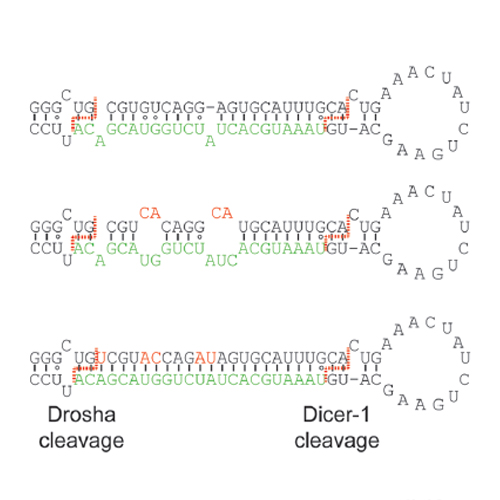Drosophila miR-277 controls branched-chain amino acid catabolism and affects lifespan
30-Apr-2013
Landes Bioscience RNA Biology, 2013, DOI: 10.4161/rna.24810, Volume 10, Issue 6, Pages 907 - 1069 published on 30.04.2013
Landes Bioscience RNA Biology, online article
Landes Bioscience RNA Biology, online article
Development, growth and adult survival are coordinated with available metabolic resources, ascertaining that the organism responds appropriately to environmental conditions. MicroRNAs are short (21–23 nt) regulatory RNAs that confer specificity on the RNA-induced silencing complex (RISC) to inhibit a given set of mRNA targets. We profiled changes in miRNA expression during adult life in Drosophila melanogaster and determined that miR-277 is downregulated during adult life. Molecular analysis revealed that this miRNA controls branched-chain amino acid (BCAA) catabolism and as a result it can modulate the activity of the TOR kinase, a central growth regulator, in cultured cells. Metabolite analysis in cultured cells as well as flies suggests that the mechanistic basis may be an accumulation of branched-chain α-keto-acids (BCKA), rather than BCAAs, thus avoiding potentially detrimental consequences of increased branched chain amino acid levels on e.g., translational fidelity. Constitutive miR-277 expression shortens lifespan and is synthetically lethal with reduced insulin signaling, indicating that metabolic control underlies this phenotype. Transgenic inhibition with a miRNA sponge construct also shortens lifespan, in particular on protein-rich food. Thus, optimal metabolic adaptation appears to require tuning of cellular BCAA catabolism by miR-277.











